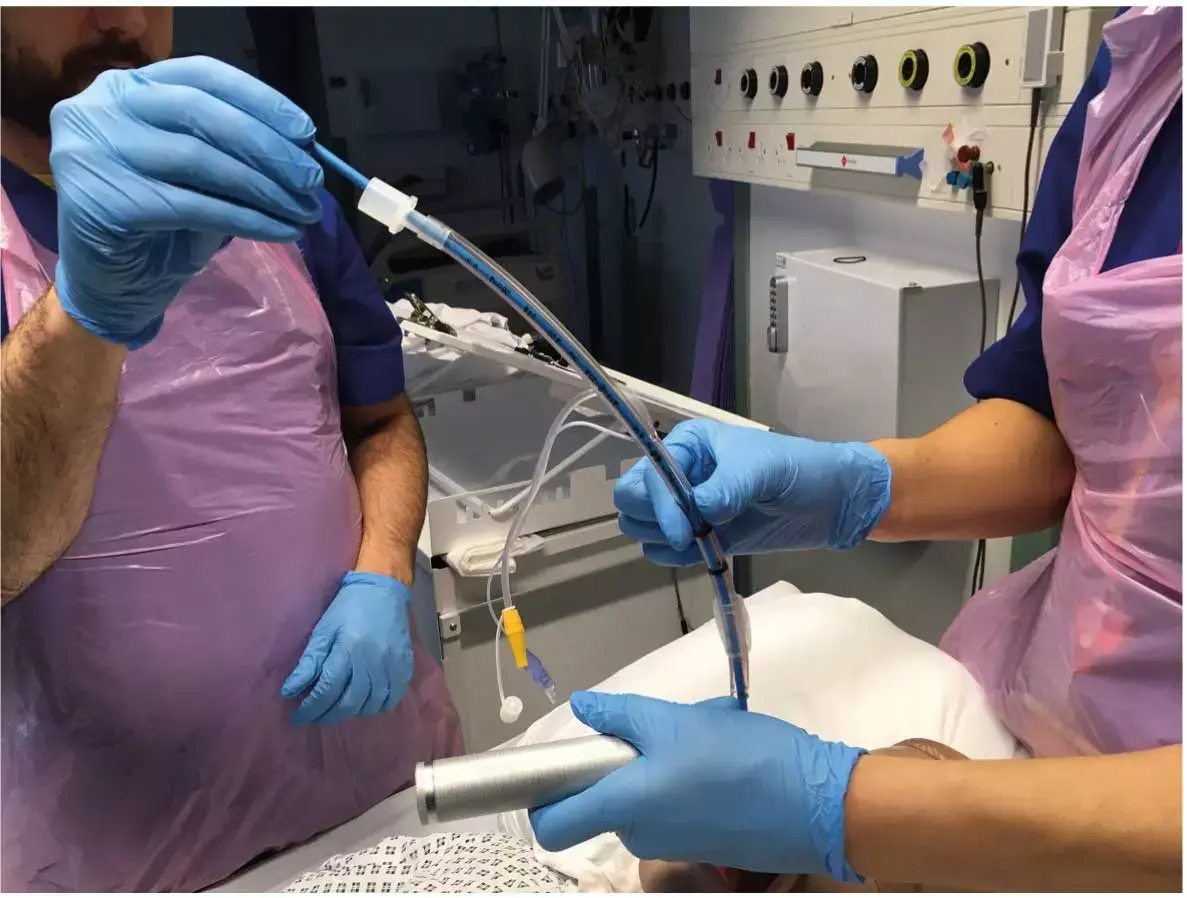- Home
- Medical news & Guidelines
- Anesthesiology
- Cardiology and CTVS
- Critical Care
- Dentistry
- Dermatology
- Diabetes and Endocrinology
- ENT
- Gastroenterology
- Medicine
- Nephrology
- Neurology
- Obstretics-Gynaecology
- Oncology
- Ophthalmology
- Orthopaedics
- Pediatrics-Neonatology
- Psychiatry
- Pulmonology
- Radiology
- Surgery
- Urology
- Laboratory Medicine
- Diet
- Nursing
- Paramedical
- Physiotherapy
- Health news
- Fact Check
- Bone Health Fact Check
- Brain Health Fact Check
- Cancer Related Fact Check
- Child Care Fact Check
- Dental and oral health fact check
- Diabetes and metabolic health fact check
- Diet and Nutrition Fact Check
- Eye and ENT Care Fact Check
- Fitness fact check
- Gut health fact check
- Heart health fact check
- Kidney health fact check
- Medical education fact check
- Men's health fact check
- Respiratory fact check
- Skin and hair care fact check
- Vaccine and Immunization fact check
- Women's health fact check
- AYUSH
- State News
- Andaman and Nicobar Islands
- Andhra Pradesh
- Arunachal Pradesh
- Assam
- Bihar
- Chandigarh
- Chattisgarh
- Dadra and Nagar Haveli
- Daman and Diu
- Delhi
- Goa
- Gujarat
- Haryana
- Himachal Pradesh
- Jammu & Kashmir
- Jharkhand
- Karnataka
- Kerala
- Ladakh
- Lakshadweep
- Madhya Pradesh
- Maharashtra
- Manipur
- Meghalaya
- Mizoram
- Nagaland
- Odisha
- Puducherry
- Punjab
- Rajasthan
- Sikkim
- Tamil Nadu
- Telangana
- Tripura
- Uttar Pradesh
- Uttrakhand
- West Bengal
- Medical Education
- Industry
Eutectic mixture of local anesthetics reduces postoperative sore throat

A new study by Abishek Murugaiyan and team showed that when compared to lubricating gel, the administration of eutectic mixture of local anesthetics (EMLA) cream over the endotracheal tube (ETT) cuff lessens the likelihood and intensity of postoperative sore throat (POST), coughing, and hoarseness of voice in individuals following general anesthesia. The findings of this study were published in Anesthesia & Analgesia Journal.
Adults who undergo endotracheal intubation may have the painful symptom of postoperative sore throat. This study intended to assess the incidence and severity of cough, POST, and hoarseness of voice in individuals following surgery when a topical application of a eutectic combination of local anesthetics cream was applied over the endotracheal tube cuff.
Adult patients aged 18 to 65, in physical status I or II according to the American Society of Anesthesiologists (ASA), and of either sex were scheduled to have either lubricant gel or 5% EMLA cream put over the ETT cuff in this randomized, placebo-controlled research. None (0), mild (1), moderate (2), or severe were the POST grades (3). Significant POST was defined as a score of ≥2. The main result was the prevalence of POST in the sixth postoperative hour. The incidence of POST at 0 seconds, 24 hours, and substantial POST (score ≥2) were among the secondary outcomes. Both the prevalence and severity of postoperative coughing as well as voice hoarseness were noted at the same time.
The key findings of this study were:
1. The research had 204 patients who finished it.
2. At the sixth postoperative hour, as well as at the 0 hour and second hour, but comparable at 24 hours, the EMLA group's incidence of POST was considerably lower than that of the placebo group.
3. With the use of EMLA cream, it was necessary to treat 5 patients at the zero hour and 3 patients at the second and sixth hours in order to avoid POST.
4. Few patients in the EMLA group had substantial POST during a 24-hour period.
5. The EMLA group saw considerably lower rates of postoperative cough and hoarseness of voice at the 0th, second, and sixth hours, but similar rates at 24 hours.
6. In the EMLA group, there were fewer cases of severe coughing fits and hoarseness throughout the course of 24 hours.
Reference:
Murugaiyan, A., Sahoo, A. K., Rao, P. B., & Misra, S. (2022). Effect of 5% EMLA Cream on Postoperative Sore Throat in Adults Following General Endotracheal Anesthesia: A Randomized Placebo-Controlled Study. In Anesthesia & Analgesia (Vol. 136, Issue 2, pp. 338–345). Ovid Technologies (Wolters Kluwer Health). https://doi.org/10.1213/ane.0000000000006269
Neuroscience Masters graduate
Jacinthlyn Sylvia, a Neuroscience Master's graduate from Chennai has worked extensively in deciphering the neurobiology of cognition and motor control in aging. She also has spread-out exposure to Neurosurgery from her Bachelor’s. She is currently involved in active Neuro-Oncology research. She is an upcoming neuroscientist with a fiery passion for writing. Her news cover at Medical Dialogues feature recent discoveries and updates from the healthcare and biomedical research fields. She can be reached at editorial@medicaldialogues.in
Dr Kamal Kant Kohli-MBBS, DTCD- a chest specialist with more than 30 years of practice and a flair for writing clinical articles, Dr Kamal Kant Kohli joined Medical Dialogues as a Chief Editor of Medical News. Besides writing articles, as an editor, he proofreads and verifies all the medical content published on Medical Dialogues including those coming from journals, studies,medical conferences,guidelines etc. Email: drkohli@medicaldialogues.in. Contact no. 011-43720751


